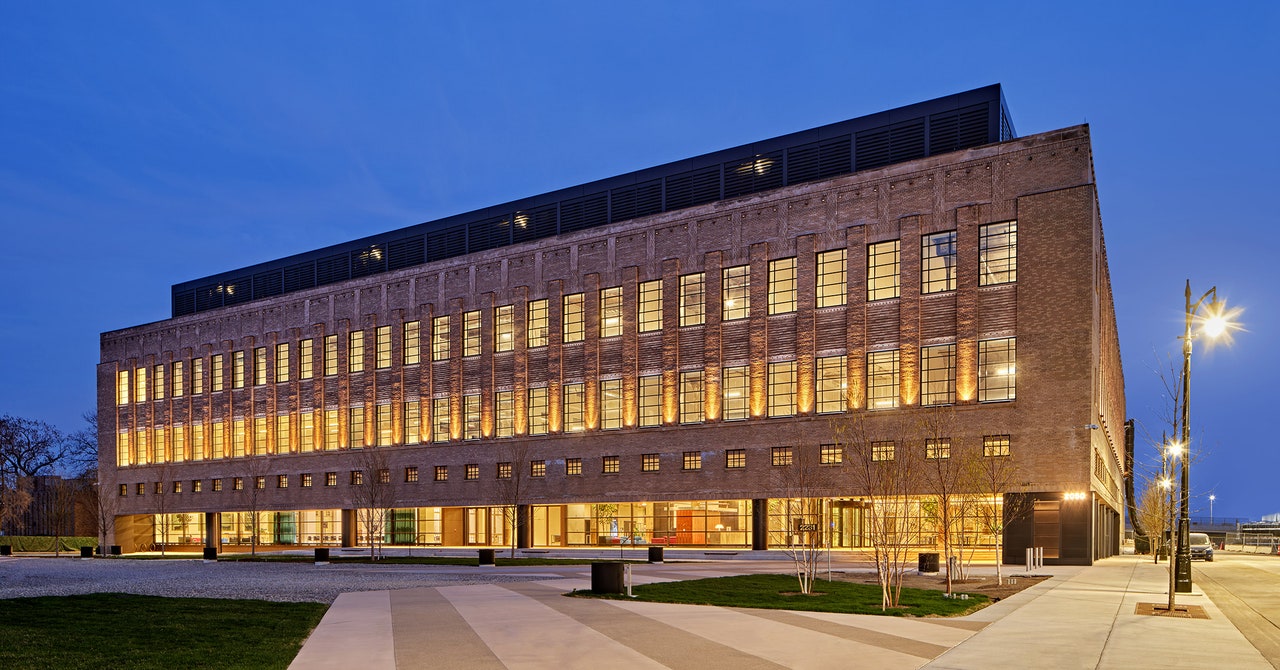For almost two For decades after opening in 1913, Michigan’s Central Station was an important stop on the nation’s interurban rail network. Then the private car took over the US and Detroit refused. In the 1970s, white residents fled to the suburbs, highways left the state and country, and local corruption skyrocketed. At the turn of the century, the train depot and the 18-story office towers behind it had been abandoned for 30 years, its faded exterior looming over Detroit’s Corktown and Mexicantown neighborhoods, a sign that things were going very badly for Detroit.
In 2018, the city and Ford Motor Company were ready to tell a different story. That year, Ford announced it had acquired the station and its environs, a monument to the kind of transportation past that had all but killed the automaker and its manufacturing brethren.
Today, Ford executives, city officials and community leaders will hold an opening ceremony for a building on the station’s new campus, part of a $950 million project it calls Michigan Central. (The state of Michigan contributed an additional $126 million in new and existing funding for the project.) The new building, called the Book Depository, will serve as a collaborative innovation space for transportation entrepreneurs and researchers.
Bill Ford, Ford’s executive chairman, says the campus redevelopment is a sign. “Michigan Central will move from a story of Detroit’s decline to a story of Detroit’s rebirth,” he says, a second act in which the city will become home to tech and auto-centric jobs that will build the next generation of transportation. “This will be the first tangible evidence that that vision is coming to life,” said Ford, who is also a great-grandson of company founder Henry Ford and tire magnate Harvey Firestone.
Ford is part of a wider movement to revitalize downtown Detroit, though its effects are not yet clear. Detroit lost nearly half of its population between 1950 and 2000. While new downtown sports stadiums, restaurants and housing projects have bolstered the case of local optimists who see a resurgence coming, recent U.S. censuses suggest the region has continued to bleed residents into the past decade, perhaps due in part to the Covid-19 pandemic. (The city has sued the U.S. Census Bureau over the results, alleging that the FBI alleged that minority residents were undercounted, impacting state funding.)
Ford expects many other companies to move to the 30-acre Michigan Central campus, which also includes 14 acres of park space open to the public. Today’s opening focuses on the Book Depository, a nearly 100-year-old building across the street from Central Station that once housed the Detroit public school library of books, records, and supplies. Now it will serve as a 270,000-square-foot maker and startup space focused on mobility, a potential incubator for future Ford partners. Even before the building’s official opening today, more than 25 companies representing 150 employees have moved into the Book Depository, say Michigan Central officials, representing companies working on autonomous and electric vehicles, roads dedicated to robot cars. built and air pollution. They are all associated with an organization called Newlab, a manufacturing incubator that has already launched an innovation space in Brooklyn’s Navy Yard.

